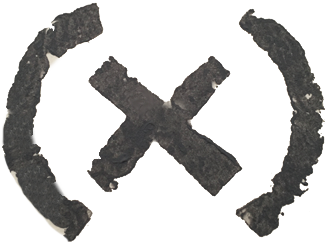Schlitten
By Joseph Beuys, 1969
wooden sled, felt, belts, flashlight, fat and rope; sled stamped with oil paint (Browncross)
13 3/4 x 35 3/8 x 13 3/4 in. (34.93 x 89.85 x 34.93 cm), DD
The Pack 1969
The Pack exudes the chaotic and dynamic energy which Beuys considered essential in order to bring change in society. Twenty-four sledges, resembling a pack of dogs, tumble from the back of a VW van. Each sledge carries a survival kit made up of a roll of felt for warmth and protection, a lump of animal fat for energy and sustenance, and a torch for navigation and orientation. Beuys commented: ‘This is an emergency object: an invasion by the pack. In a state of emergency the Volkswagen bus is of limited usefulness, and more direct and primitive means must be taken to ensure survival.’
This strongly autobiographical work refers directly to Beuys’s plane crash over the Crimea during the Second World War. He often described being rescued by a band of Tartars who coated his body with fat and wrapped him in felt. Whether real or mythical, the story shows the symbolic importance of these materials in Beuys’s mind. It also suggests a fable of death and rebirth in which Beuys is purged, perhaps of his wartime guilt, and brought back to life by a nomadic people.



